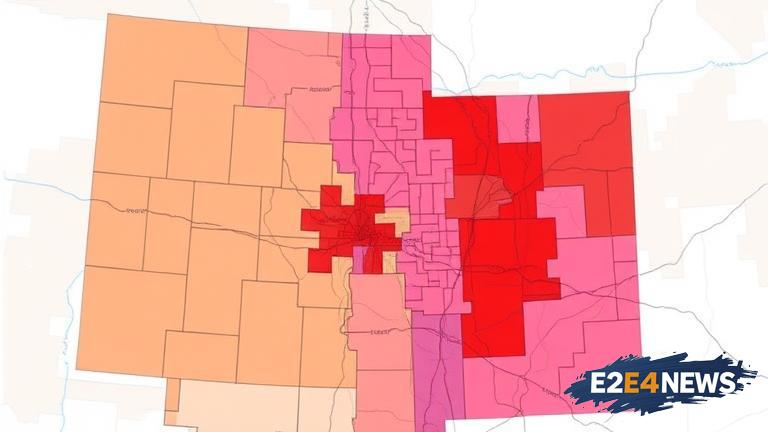In a significant development, a federal court has ordered the state of Utah to redraw its congressional map, citing unconstitutional gerrymandering. The ruling comes after a lengthy legal battle, with plaintiffs arguing that the current map unfairly favors Republican candidates. The court’s decision is a major victory for Democrats and voting rights advocates, who have long argued that the map is biased. The current map was drawn in 2020, following the census, and has been the subject of controversy ever since. The court found that the map was drawn with the intention of favoring Republican candidates, and that it diluted the voting power of minority communities. The ruling is a significant blow to Utah’s Republican party, which has controlled the state’s congressional delegation for decades. The state will now be forced to redraw its map, which could potentially lead to more competitive elections. The court’s decision is also a victory for the National Democratic Redistricting Committee, which has been fighting against gerrymandering across the country. The committee’s chairman, former Attorney General Eric Holder, praised the ruling, saying it was a major step forward for voting rights. The ruling is likely to have significant implications for the 2026 elections, with several congressional seats potentially becoming more competitive. Utah’s Republican lawmakers have vowed to appeal the decision, but it is unclear whether they will be successful. The state’s Democratic party has welcomed the ruling, saying it is a major victory for democracy. The redrawing of the map will be a complex process, with several different interest groups and stakeholders involved. The court has given the state a deadline to complete the process, and it is likely that the new map will be in place for the 2026 elections. The ruling is also significant because it highlights the importance of independent redistricting commissions, which are designed to draw maps that are fair and unbiased. Several other states are also facing legal challenges to their congressional maps, and the ruling in Utah could have implications for these cases. The use of gerrymandering has been a major issue in American politics for decades, with both parties accused of using it to gain an unfair advantage. The ruling in Utah is a significant step forward in the fight against gerrymandering, and it could have major implications for the future of American democracy. The court’s decision is also a reminder that the voting rights of all citizens must be protected, and that maps should be drawn to ensure that every vote counts equally. The redrawing of the map will be a complex and contentious process, but it is a necessary step towards ensuring that Utah’s congressional delegation is representative of the state’s diverse population. The ruling is a major victory for the people of Utah, who will now have a greater say in the democratic process. The state’s lawmakers will be forced to work together to draw a new map, which could potentially lead to more bipartisan cooperation. The ruling is also a significant development in the ongoing debate over voting rights, with several other states facing similar legal challenges. The use of gerrymandering has been a major issue in American politics for decades, and the ruling in Utah is a significant step forward in the fight against it.
